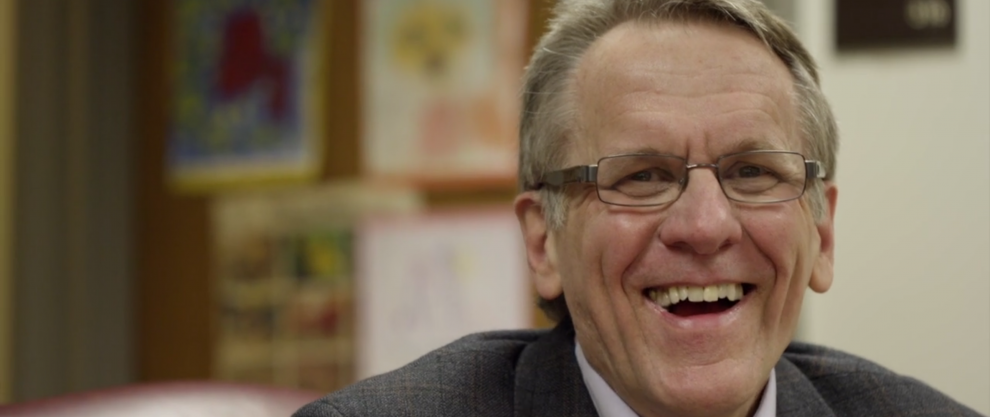I remember him larger than life. He was a big man—tall, solidly built, with a voice that boomed and the occasional flair for the dramatic. To this day, nearly twenty years later, the lasting image I have of Roger Lundin finds him crawling across the long wooden table that filled our seminar room to make a point. He would have been in khakis, navy blazer, crisp white shirt and tie. Our senior seminar in the English department considered orphans in literature that semester, and we read books (such books!) written over the last two centuries as Roger told us the story of that time—a story that began in patricide (the French Revolution praised fraternité, which was all it had left after lopping off the head of king and God), moved through a blissful childhood of unfettered innocence, then into the panic, confusion, and despair of orphans trying to find their way in the world, maybe even their way back home. (He wrote some of this down, thankfully, as “Interpreting Orphans: Hermeneutics in the Cartesian Tradition,” in The Promise of Hermeneutics, though he never did get to that orphan book he had hoped to write.)
Along with Alan Jacobs, Bruce Benson, Art Holmes, and Bob Webber, Roger seeded my theological imagination. He taught me the joys and art of thinking theologically, and he beckoned me—beckoned all of us in to the holy mystery of life.
In Believing Again: Doubt and Faith in a Secular Age, Roger speaks of art’s ability to “sound the depths of our unfathomable lives.” Reading his books, one realizes that criticism, too, can deliver such a paradoxical gift—taking the measure of that which cannot be measured, making sense of the ever-elusive life we have been given.
That phrase calls me back to a lesson in writing. “Look for the metaphors naturally embedded in your writing,” Roger said. He did look, he found, and he made the most of what he unearthed. Consider that phrase again: “sound the depths of our unfathomable lives.” Perhaps he typed the first bit “sound the depths” and saw the opportunity to make the most of it. Or maybe, mindful of the “unfathomable” mystery of life, he spotted the paradox of an art that can take life’s measure without plucking out its mystery. The elegance of Roger’s prose is the elegance of a woman whose style one could easily miss.
In recent years, I have caught glimpses of Roger’s tenderness, even a fragility. In his writing he made a turn to the personal. It wasn’t a turn away from literature and theology, but along the way, and especially in his last two books, Roger began to weave together his masterful reading of modern literature, an account of doubt and belief, and the memories and hope that made his life. It is difficulty to classify his final book, Beginning with the Word. Is it testimony? Theological history of modern literature? Christology? In any case, I am grateful that he wrote it, in particularly that he braved autobiography. As the book closes, he offers a moving account of his parents become his children, in light of Emily Dickinson’s line about the affection coming when her mother became her child—and the quiet way he offers that as a window into how the humility of the Word became flesh might provoke love for the Father in even the coldest of hearts.
Roger Lundin died last night, unexpectedly, from complications related to a heart disorder. Regent College shot a video to promote his class on modern literature this past summer, and his final words seem almost prescient:
“In human life, our goal can’t be to go back to the innocence that was lost. The way back is barred. The Christian life is about the way forward—but the way forward is the way forward through the cross, and the empty tomb. The older I get the less nostalgic I become, and the more I become oriented towards the future. T. S. Eliot says it in Four Quarters. He says, ‘Old men ought to be explorers…’”
Lord have mercy on this explorer, and on those who loved him.
